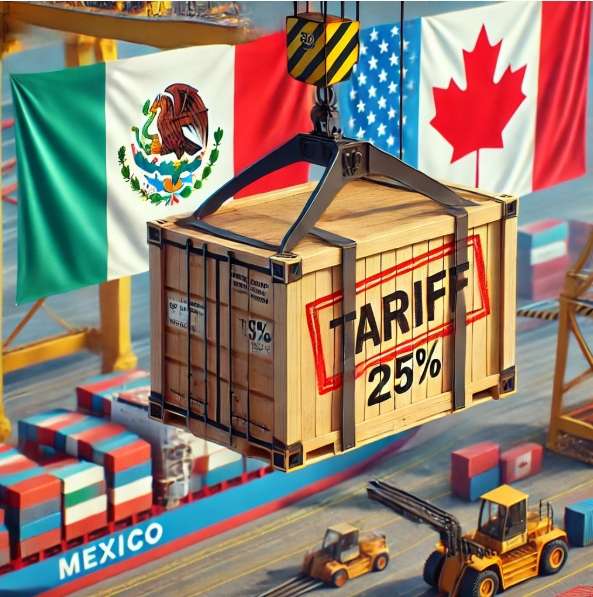The Impact of Tariffs on Women Entrepreneurs in Las Vegas
The imposition of import tariffs during President Donald Trump’s administration, aimed at addressing trade imbalances and protecting American businesses, has had far-reaching impacts on U.S. commerce. While these policies were introduced with the intent to boost domestic production and reduce reliance on foreign imports, they have produced significant, often unintended, consequences—particularly for small business owners. In the bustling economy of Las Vegas, local businesswomen are facing unique challenges as these tariffs disrupt their operations and reshape the business landscape.
One key component of the tariff policy was the introduction of a 10% import tax on goods coming from most countries, with even steeper tariffs applied to Chinese imports. Given China’s status as a major exporter of products that support the Las Vegas economy—ranging from toys and electronics to consumer gifts—the ripple effects have been profound. For many entrepreneurs, especially women running small businesses, these increased import costs have introduced a precarious imbalance in already-tight profit margins.
Las Vegas is a city defined by its diverse business ecosystem, heavily influenced by tourism and consumer spending. Women entrepreneurs in industries such as retail, gifts, and toys, who were already operating in a competitive market, now find themselves in an uphill battle against rising costs. The need to either absorb these costs or pass them on to customers presents a difficult dilemma. Absorbing the increased expenses can quickly erode profit margins, while passing costs onto consumers risks deterring purchases—especially in a market that depends on price-sensitive tourists and locals.
The gift and toy sector in particular has been acutely impacted. Many businesses in this industry rely on imported goods to maintain a diverse inventory of products at affordable prices. Tariffs on Chinese imports, which contribute significantly to these businesses' supply chains, have forced up product costs across the board. Unlike large retailers that can negotiate bulk pricing or absorb temporary financial hits, small business owners don’t enjoy the same flexibility. This has led many entrepreneurs to cut inventory or reduce marketing budgets, both of which are critical to sustaining success in Las Vegas’s vibrant but competitive market.
Ironically, while the tariffs were designed to encourage domestic sourcing of goods, for many Las Vegas businesswomen, this is neither a practical nor affordable alternative. Domestic suppliers often charge significantly more due to higher labor costs and limited manufacturing infrastructure—a reality that makes it nearly impossible for small businesses to move their sourcing operations locally. The lack of accessible or cost-effective domestic alternatives leaves these entrepreneurs stuck in a difficult position: absorbing higher import taxes without a viable path to long-term sustainability.
Beyond their immediate financial implications, the tariffs are also creating broader economic ripple effects. For small business owners, the impact on profit margins means less capacity to reinvest in their businesses, such as expanding inventory, hiring staff, or exploring new markets. For consumers, increased import costs translate to higher retail prices, further discouraging spending on non-essential goods. In a tourism-driven economy like Las Vegas, where discretionary spending from both visitors and locals is crucial, this cycle threatens the balance of consumer and business dynamics.
Moreover, the nuances of global supply chains mean that policies like tariffs impact far more than their intended targets. While the goal may have been to strengthen American manufacturers and workers, the reality is that many small and medium-sized businesses lack the resources or connections to immediately adapt to such sweeping economic changes. For women entrepreneurs in Las Vegas, these challenges are amplified. Many of these business owners operate on lean budgets and rely on carefully honed strategies to stay afloat. Unexpected disruptions such as increased tariffs add instability to business planning, making it increasingly difficult to sustain operations and plan for growth.
As the tariffs continue to reshape the Las Vegas economy, it’s becoming evident that broader policy adjustments or new support mechanisms will be necessary to mitigate their impact. Women entrepreneurs have shown remarkable resilience and creativity in navigating a competitive market, but the compounding pressures of tariffs threaten to undermine their efforts. If these challenges persist without targeted interventions—such as reduced tariffs or support programs for small businesses—the long-term health of Las Vegas’s dynamic entrepreneurial community could be at stake.
This situation also underscores the complexity of global trade policies and their intersection with local economies. While the aim of these tariffs was to safeguard U.S. interests, the reality is that small businesses, particularly those run by women, are bearing the brunt of the costs. Policymakers must consider the interconnected nature of global markets and the unintended strain such policies can place on communities far removed from the policy’s original intent. For Las Vegas’s businesswomen, the fight to remain competitive and financially secure is more challenging than ever. Addressing these pressing challenges is essential—not only for the survival of individual businesses but for the overall economic health of the Las Vegas community.
